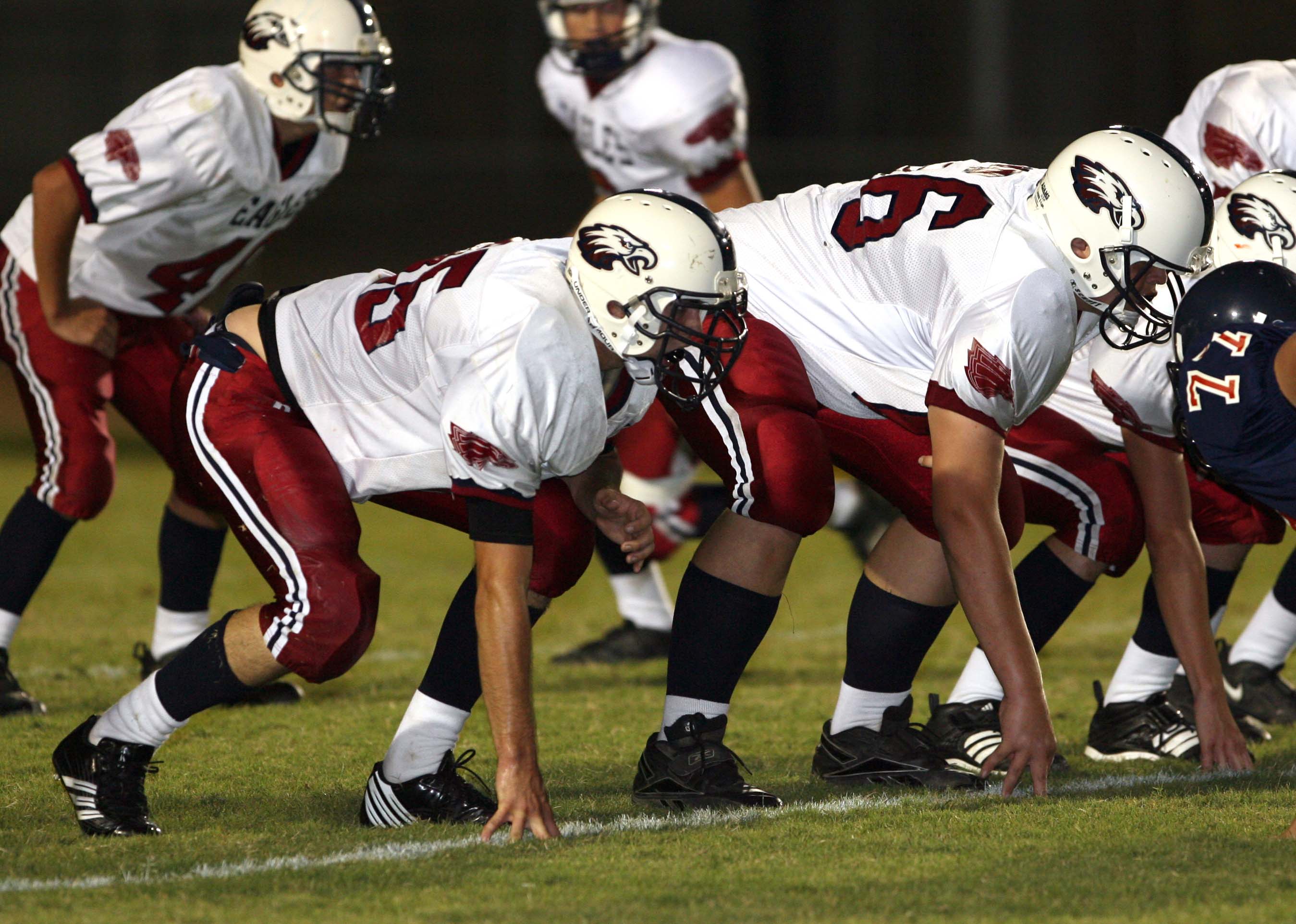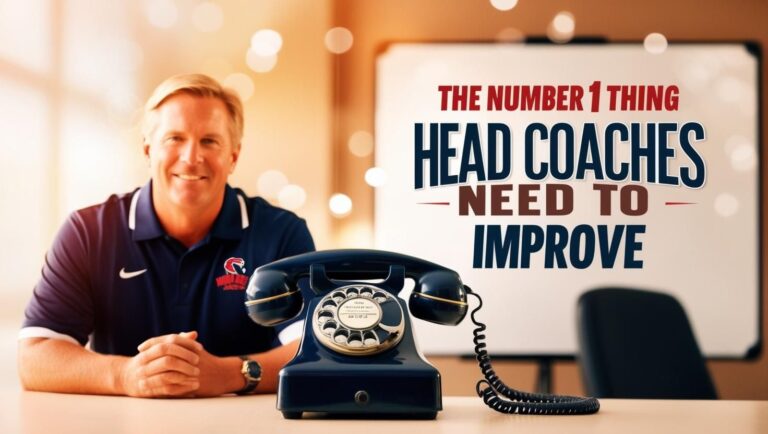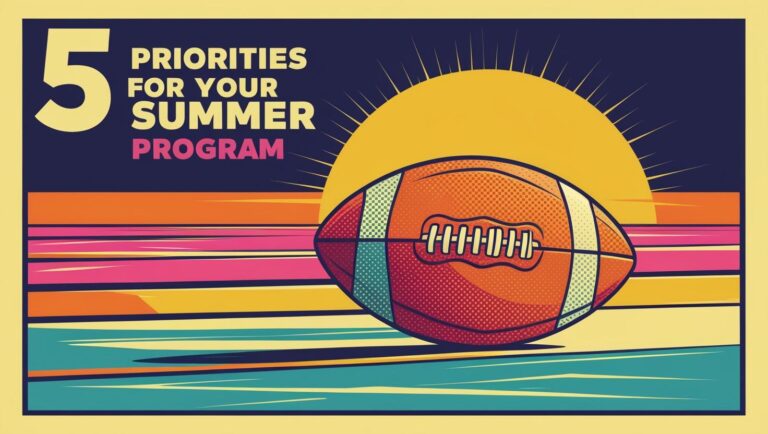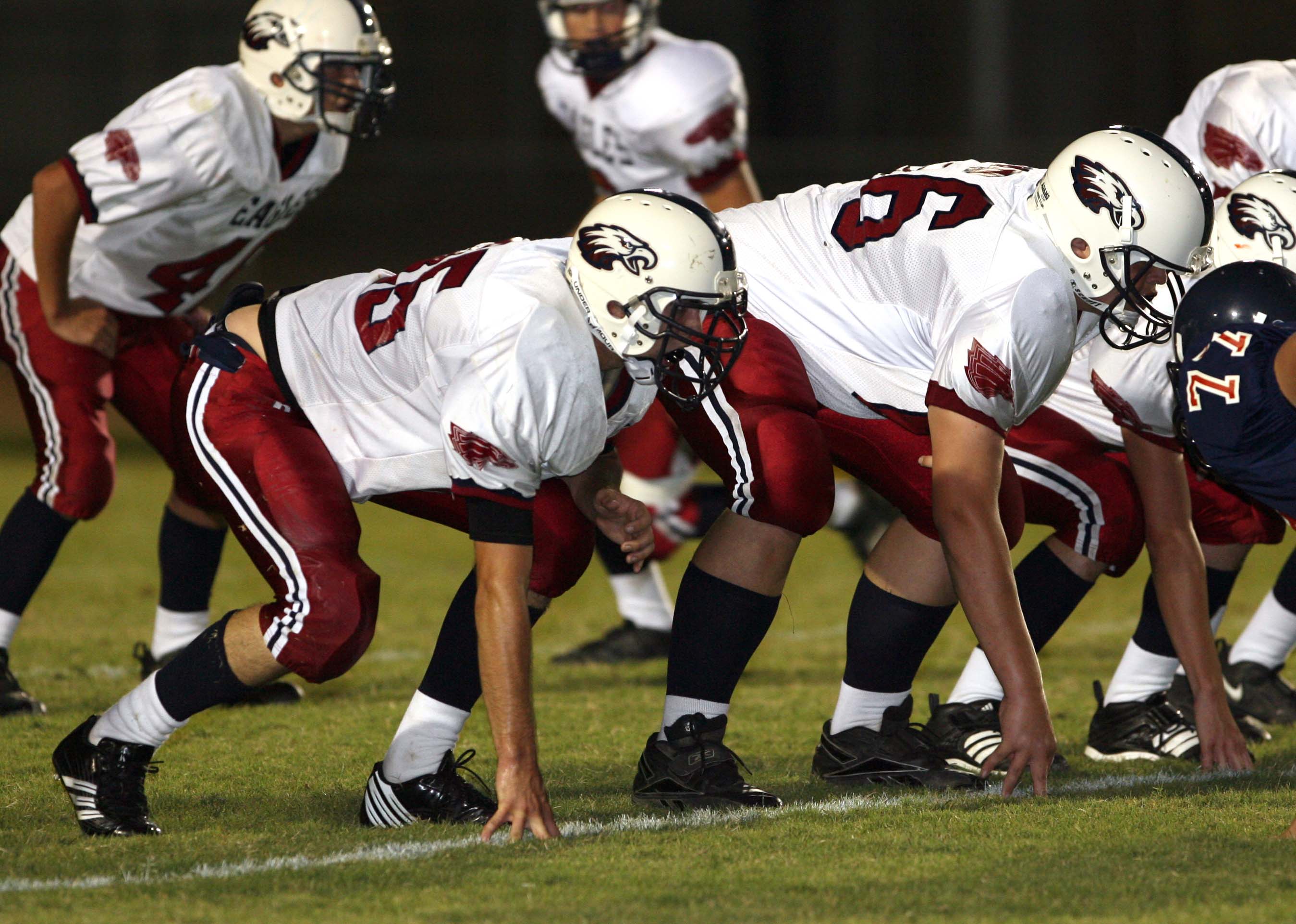
I took over as a Head Coach in 2003 at a private, Christian school of about 300 students in Temecula, California named Linfield Christian. I was there for two years as the Head JV Coach prior to the Varsity coach moving to Iowa.
One of the first things I did was have a Parent Meeting. I wanted to let the parents know how I was going to run my program, who my coaching staff would be, what the summer attendance policy would look like, etc. etc.
I sat down one night and thought about questions parents might have, and put together a PARENT FAQ INFORMATIONAL SHEET which I’ve used ever since.
It has changed a little over the years, but take a peek below. If you want me to send you the original document, send me an email at coach478@gmail.com.
2007 CAPISTRANO VALLEY CHRISTIAN FOOTBALL
PLAYERS/PARENTS F.A.Q.
What is the coaching staff’s philosophy regarding the hydration of players?
The most important time of the year for us to properly maintain guidance of hydrating our players is during “TRAINING CAMP” two-a-days in late August. Traditionally, this is the hottest time of the year for us. During “TRAINING CAMP” players are given a 2 minute water break every 20 minutes that we are on the field. During the regular season, players are given water breaks every 20-30 minutes. We try our hardest not to go for more than 30 minutes without a water break ever.
There is scientific research to support the idea that thirst is not an optimal way to determine when and how much an athlete should drink. By the time an athlete is thirsty, they are already somewhat dehydrated and in most cases will not drink enough to fully replace the fluids lost in sweat. Players are always encouraged to drink even when they feel that they don’t need it.
What about his grades during the football season? Year round?
According to CIF (the body that governs high school athletics in California) rules, each player needs to have a minimum 2.0 GPA in season and year round to be eligible. Our Coaching Staff will stay on top of the grades of our players. Also, students with 2 or more Fs, regardless of their GPA are not allowed to play. Players with less than a 2.5 GPA must have a completed progress report every four weeks signed by their teachers. Our team will have a program goal of 3.0 for the football program. My Linfield Christian football team in 2005 had the 3rd best GPA with schools under 1500 students. There were about 200 schools that we competed against for this 3rd place finish!
What is the discipline structure?
We are very structured with our discipline. Every athlete is treated the same; it doesn’t matter if you are scoring touchdowns or not even a starter. You must be consistent when working with teenagers and more importantly, in this sport of football!
What are the expectations of the parents?
1. Support your child in his pursuit of being a student-athlete.
2. Support the coaching staff in their day to day operations of the football program.
3. Pick up your child from practice on time.
4. Support your child financially with our program.
5. Follow up with proper medical attention if your child gets injured.
What are the costs?
We have what we call a Pride Pack that will be distributed in the summer. This consists of all of their practice clothes, game day sweats, mouthpieces, practice jersey, etc. This pack will be approximately $225 this year.
There is also a school wide fee for all athletes.
What about injuries?
One of the biggest myths about football is that every boy will be hurt.
One research project by DeLee and Farney found that the incidence of injury among Texas high school football players was 0.506 injuries per athlete per year. (DeLee JC, Farney WC: Incidence of injury in Texas high school football. Am J Sports Med 1992;20(5):575-580.)
That means that out of the 60 players we will have this year, approximately 30 of them will have some type of injury.
It is a fact that, in my last four years here, I have seen more casts and crutches from snowboarding or motorcycling in than from football.
More research shows that during the past 15 years, there has been an average of 34 deaths per year among skiers and snowboarders. During 1999-2000 seasons, 30 fatalities occurred.
(Wilderness Medicine Letter, Volume 19, Number 2, Spring 2002)
HOW DANGEROUS A SPORT?
By Bob Condotta and Sandy Ringer
Seattle Times staff reporters
September 14, 2004
“Playing football is probably safer than kids getting in a car and driving on the highway,” said Dr. Frederick Mueller, who heads the National Center for Catastrophic Sport Injury Research at the University of North Carolina. Statistically, anyway, there’s no comparison. According to numbers compiled by Mueller’s center, the death rate for football players at the high-school level last year was 0.13 per 100,000 (there were no deaths last year in college football). The death rate for male drivers between the ages of 15 and 24 years old, meanwhile, is 48.2 per 100,000, according to numbers published in 2001 by the University of Maryland Medical Center. “What I don’t want people to do is all of a sudden stop playing football,” said Dr. Richard Ellenbogen, the chief of neurosurgery at Harborview Medical Center and the University of Washington. “It’s dangerous, but so is riding a bike, driving a car and simply living.” Mueller’s numbers indicate, in fact, that per 100,000 participants, football has a lower death rate than hockey, gymnastics, lacrosse and baseball, and much lower than competitive skiing. Football had a serious injury rate of 0.73, third-highest below hockey (1.29) and gymnastics (1.15).
Because we will have injuries in our football program, we have a certified Athletic Trainer here on campus part time. He is the first one to see our athletes that become injured if he is here. He is usually here during the school year when we practice. He also travels to our games to serve our students.
Several coaches are CPR/First Aid certified. Barry Schoolmeester, one of our coaches is a Firefighter/Paramedic for the City of Vernon. The Coaching Staff recommends the OUCH Clinic in Murrieta for all football related injuries. We strongly recommend that you find a “sports/athletic” physician for a sports injury.
Both the Head Coaches and Athletic Trainer work hands on daily to communicate about injuries. They are documented and track for the best possible care we can give our players.
Do you make cuts?
No. If you are here in August for Training Camp, you will make the team. The only time a kid gets “cut” is if he does not meet the minimum off-season participation hours. This does not apply to incoming ninth graders.
What about family vacations?
We encourage family vacations during the summer. Your child will not be disciplined for if he misses parts of our Summer Program. Some examples of when we excuse players from our summer program – family vacation, a mission trip, participating in another football camp. We ask that all family vacations are finished before our Training Camp begins. It is imperative that your son is here during Training Camp.
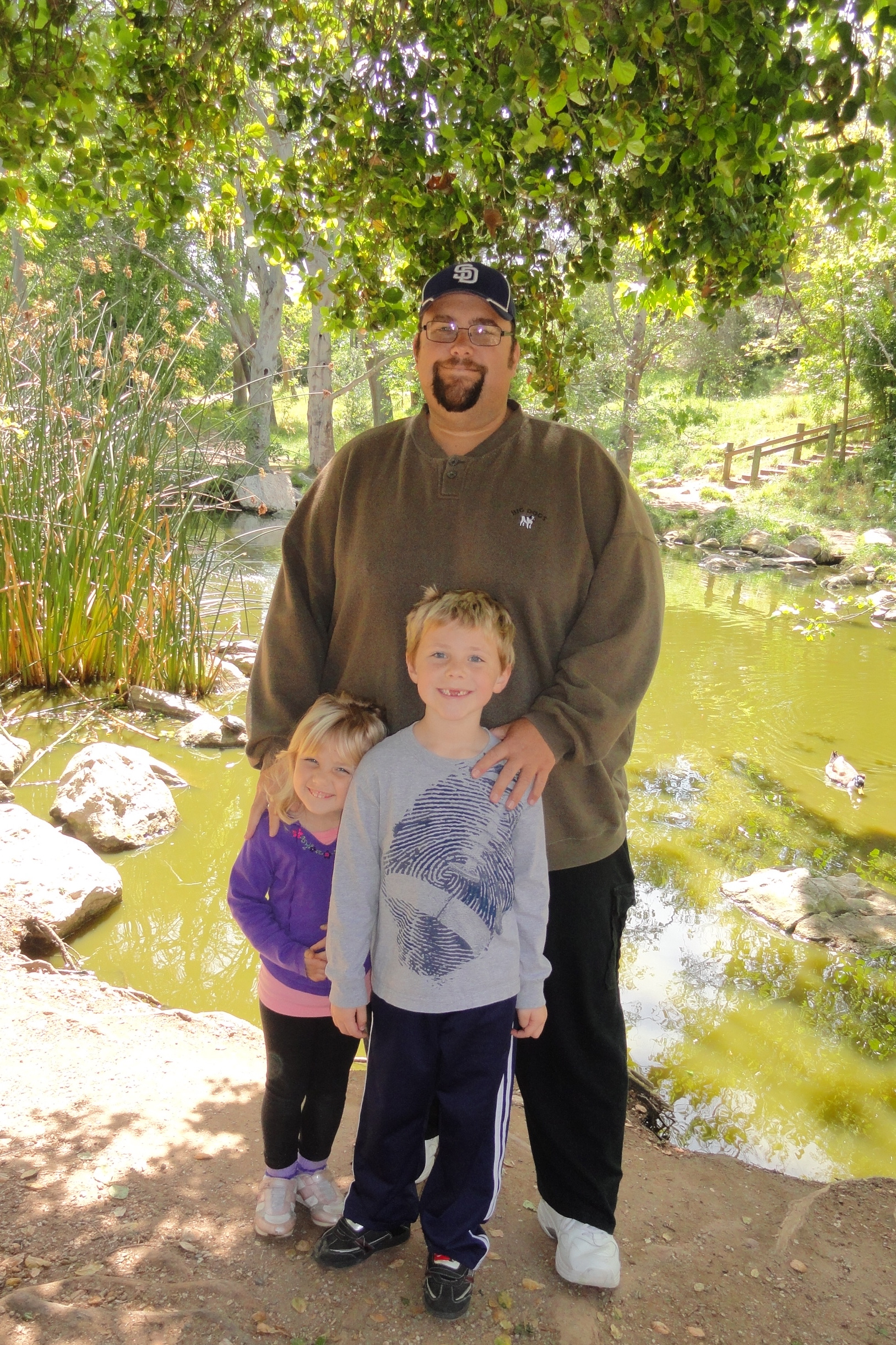
What do they need to be cleared to play?
Every athlete needs a physical. There are forms that the Athletic Office needs on file for every athlete. Please contact the Athletic Office for these forms.
How much fundraising do we do?
Not much!!! The Booster Club has an Annual Golf Tournament that raises most funds for athletics. We do sell ads for our program each year and each player will be required to sell a minimum number of ads.
What are the off season expectations? Playing other sports?
Our coaches encourage our players to participate in other sports. Many of our kids do play basketball, baseball, golf, track, etc.
Our off season weightlifting program begins the first week of February. If a player is not participating in another sport, they are required to be in the off season program with his teammates.
How can I be involved as a parent?
The best way to get involved is through the Eagle Booster Club. Contact Corinne Melzer about joining the Booster Club. Her email is: xxxxxxxxx.
Also, you can contact Coach Fore to volunteer your time 949-493-5683 x258.
What about practice attendance ?
We are very strict about practice attendance once we get to Training Camp and the regular school year. 1 unexcused practice will result in you missing a game. Two unexcused absences will result in missing two games. A third unexcused absence may result in removal from the team. An “excused” absence is during Training Camp is: family emergency or a doctor’s note to miss practice. There may be other instances that need to be cleared with Coach Fore. During the school year, an “excused” absence is: absent from school, family emergency, or a doctor’s note to miss practice
What about college recruiting?
To begin with, the rate of high school players that go on to play Division 1 college football is 1 in 10,000! Not very good odds for anything! I did have a Division 1 player, Danny Kelly to the University of Hawaii at Linfield and 5 other college football players.
I understand that part of my job as the Head Coach is to assist our players in getting to that next level of play if: 1. They desire to play college football.
2. They have the grades to play college football.
3. Their parents want them to play college football.
4. Our coaching staff believes that they have the ability to play college football.
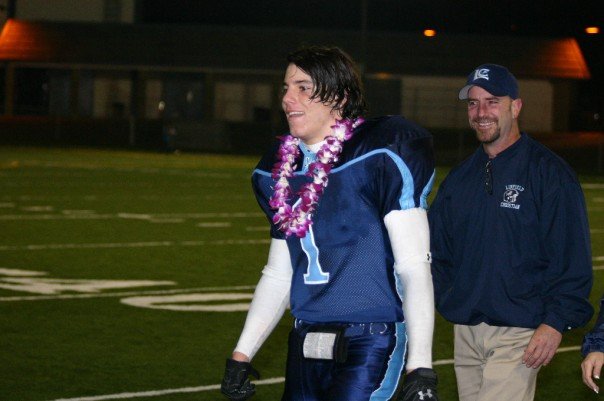
What kind of workout program do you use? Do you recommend any kind of supplements for my child?
The strength program that we use has produced some amazing results for the kids that have “bought in.” We adapted this Strength program from Division 3 Wheaton College in Illinois. This program requires only 45 minutes per day for four days per week.
Our coaching staff does NOT recommend any kind of supplement for your child. We encourage our players to make sure that they get plenty of protein and water in their diet. Some of our players drink different types of nutritious shakes either before or after their workout. Although this is a good idea to replenish your body, our coaching staff does not promote any specific drinks, shakes, powders or pills.
WELCOME TO CVCS FOOTBAL
Welcome to this year’s football season! As you may already know, football is a big commitment, not only for the players, but their families as well. We’d like to give you an overview of the expectations for your players plus the events and traditions that will take place this season.
COMMUNICATION TO YOU: Dates, times and details of all football activities will be communicated throughout the season on our school’s website (cvcs.org), the sports website, highschoolsports.net and through email. All communication regarding practice, meeting times, etc. are communicated with Coach Fore.
TRAINING CAMP: In mid-August, Training Camp begins. It is imperative that players attend all of the two weeks of Training Camp. This is where the real football training begins with pads, helmets and hitting! The players attend practice in the mornings, go home to eat and rest, and then come back for an afternoon practice.
END OF TRAINING CAMP CELEBRATION: On the last day of Training Camp, the players celebrate by having some sort of social, (e.g. BBQ, swim party, etc.)
HOMECOMING PEP RALLY: During the morning of our Homecoming Game, please join the HS student body in the gym for the Fall Sports Pep Rally. The different classes compete in fun games and our football team is introduced and cheered on for the Homecoming game that night FRIDAY NOVEMBER 5th at 9:00 AM
VOLUNTEERS: As you can imagine, it takes a lot of volunteers to make our season work. There will be many opportunities to serve. Some will be optional, others will be mandatory. Chain gangs, video recorders & ticket table workers are needed during game nights. Volunteers will also be needed to help out with the Senior & Awards banquets as well as making Homecoming head wreaths for our cheerleaders.
BOOSTER CLUB: The Booster Club is a school-parent organization that raises funds for the CVCS Athletic programs. All our athletes & teams benefit from the support of the Booster Club (e.g. equipment, gym floor, gym scoreboard, backboards, etc.). We ask that you support the Booster Club by either becoming a paid member, by volunteering on the Board or the annual golf tournament or by participating in the golf tournament as a player or sponsor…or all the above!
HOME GAME MEALS: On a few of the evenings before our home games, we will have “Home Dinners”. These are evenings where the team and their families come together to eat, socialize and support our team before the home game the following evening. We generally eat pot-luck style with every family assigned a dish to bring.
SENIOR DINNER: Near the end of our season we will enjoy a dinner together to honor the senior players on our team. It’s a special night where the senior parents have an opportunity to say a few words about their senior football player in front of the rest of the team and their families.
THURSDAY, OCTOBER 28TH, 6:00 PM, CVCS WORSHIP CENTER
SENIOR GAME NIGHT: Traditionally, this is our last Home Game of the season is an evening where we honor the seniors on our team on the football field in front of our fans. You’ll want to be to the field at least 30-40 minutes before game time to watch the special ceremony for the seniors and their parents.
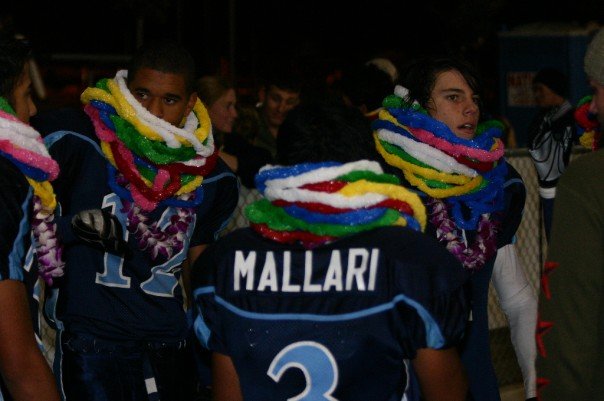
OCTOBER 30TH IS SENIOR NIGHT.
PLAYOFFS: CIF Playoffs begin Mid November
THANKSGIVING DAY: The players are so thankful to be in the playoffs that they practice early Thanksgiving morning for 1-2 hours.
AWARDS BANQUET: A time to celebrate the season, the players receive their awards and letters. Our coaches are thanked as well and we watch a highlight video of our season.
SPRING FOOTBALL: After some time off and beginning in February, players begin working out with weights, as studies & other sports allow. The school’s Weight Room will be available in the morning, lunch time & after school.
We hope this prepares you a bit for this football season. Because of the time commitment that the sport of football demands, it creates a unique opportunity to make many friends within our football family & to have many good times together. We look forward to spending this season with you!
